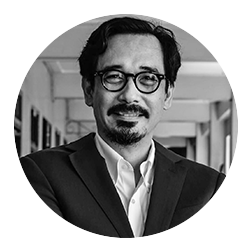 By Jose Mari BFU Tirol
By Jose Mari BFU Tirol
(The author is the dean of the College of Law of the University of San Agustin)
The Civil Code of the Philippines contains more than 2,000 articles. Many have been amended, repealed, or supplemented by other laws; but its basic, i.e. foundational provisions – Articles 1 to 36 which comprise its preliminary title on the effect and application of laws and on human relations – remain intact.
Article 19 obliges all of us to “act with justice”, etc. in the exercise of our rights and in the performance of our duties, and to “give everyone his due, and observe honesty and good faith”. It is echoed by the Lawyer’s Oath, which requires the lawyer to “maintain allegiance to the Republic of the Philippines, … support the Constitution and obey the laws as well as the legal orders of the duly constituted authorities therein … do no falsehood …”And by the Oath of Office of the Philippine President, who swears in part to “do justice to every man”.
Article 32 is specifically directed against the acts of public officials and employees, and is supplemented by other laws such as the Revised Penal Code, the Anti-Graft and Corrupt Practices Act (Republic Act 3019), and the Code of Conduct and Ethical Standards for Public Officials and Employees (Republic Act 6713).
Now some insist that when the President names-and-shames persons with alleged drug ties, and threatens to kill them, he is simply complying with his duty to look out for everybody’s welfare. They add he does not violate his subjects’ right to due process, since they are not human and have long been in watch lists that have been verified and validated. That he is merely engaged in hyperbole, that he is a lawyer and so he knows what he is doing, and that he has, at various times, underscored his respect for the rule of law.
Recall however that Pol Pot is quoted as saying that “he who protests is an enemy; he who opposes is a corpse” and claimed that everything he did, he did for his country; he went after intellectuals to pursue his version of Cambodia. And that Hitler targeted Jews, homosexuals, Freemasons, certain Christian denominations, Communists, and what he called “subhuman” for his Ten Thousand Year Reich.
These bring to mind the eerily familiar commentary of Mark Oswald in “The ‘Howling Wilderness’ Courts-Martial of 1902” [https://apps.dtic.mil/sti/pdfs/ADA390585.pdf] about US Army Gen. Jacob H. Smith – a man prone to ranting, indiscreet language, and erratic behavior, who wanted no prisoners, who wished his men to kill and burn, and who decreed that the interior of Samar must be made a howling wilderness: “Legitimacy is related to rational public perception that those who seek to impose the ‘rule of law’ upon others are not themselves lawless.”
The war on drugs remains high in the administration’s agenda. Even recently retired ICC Prosecutor Fatou Bensouda implicitly recognizes the necessity of addressing the same, but within the parameters of the law and due process of law (https://www.icc-cpi.int/Pages/item.aspx?name=210614-prosecutor-statement-philippines).
Parenthetically, the current administration consistently justifies its draconian war on drugs by blaming the previous one for the proliferation of drugs in the country. If it seeks to correct the errors of the past, then it should correct all errors, within the bounds of the law. And should not content itself with blaming the previous administration for the proliferation of Chinese vessels swarming the West Philippine Sea, and then do nothing about them.
Philippine law is more than adequate to address the drug problem. If the watch lists are truly verified and validated, then surely there is enough evidence that would warrant the filing of airtight cases against the persons therein. There is no legal or even logical reason to shame them in the court of public opinion and to require them to present proof to clear their names. Neither is there any legal or logical reason for the President to call for their killing, whether hyperbole or not, knowing fully well that some state forces will take him seriously. So why encourage a climate of impunity, and deny these persons their humanity and dignity?
The government remains high on its war on drugs. Its anti-drug policy transcends sovereignty and territorial boundaries, since our very own Constitution states that the Philippines adopts the generally accepted principles of international law as part of the law of the land and adheres to the policy of peace, equality, justice, freedom, cooperation, and amity with all nations (Article II, Section 2). But it appears that the government cannot comply with its prime duty to serve and protect the people, to maintain peace and order, to protect life, liberty, and property, to promote the general welfare, and to value human dignity and respect human rights (Id., Sections 4, 5, and 11).
To argue that Prosecutor Bensouda and/or ICC hypocritically apply the Rome Statute to the Philippine war on drugs is to engage in whataboutism, a logical fallacy that Article 7 of our own Civil Code frowns upon – the “violation or non-observance” of laws “shall not be excused by disuse, or custom or practice to the contrary.”
The government’s execution of its anti-drug policy adversely and fatally affects the basic constitutional, legal, and human rights of its victims in particular, and of common sense and human decency in general. It is, pursuant to the findings of Prosecutor Bensouda, the crime against humanity of murder.
But there is one irony that those believed responsible for the war on drugs can benefit from: they, unlike the victims thereof, can rest assured that their rights to be presumed innocent and to due process will be respected by the ICC.




















